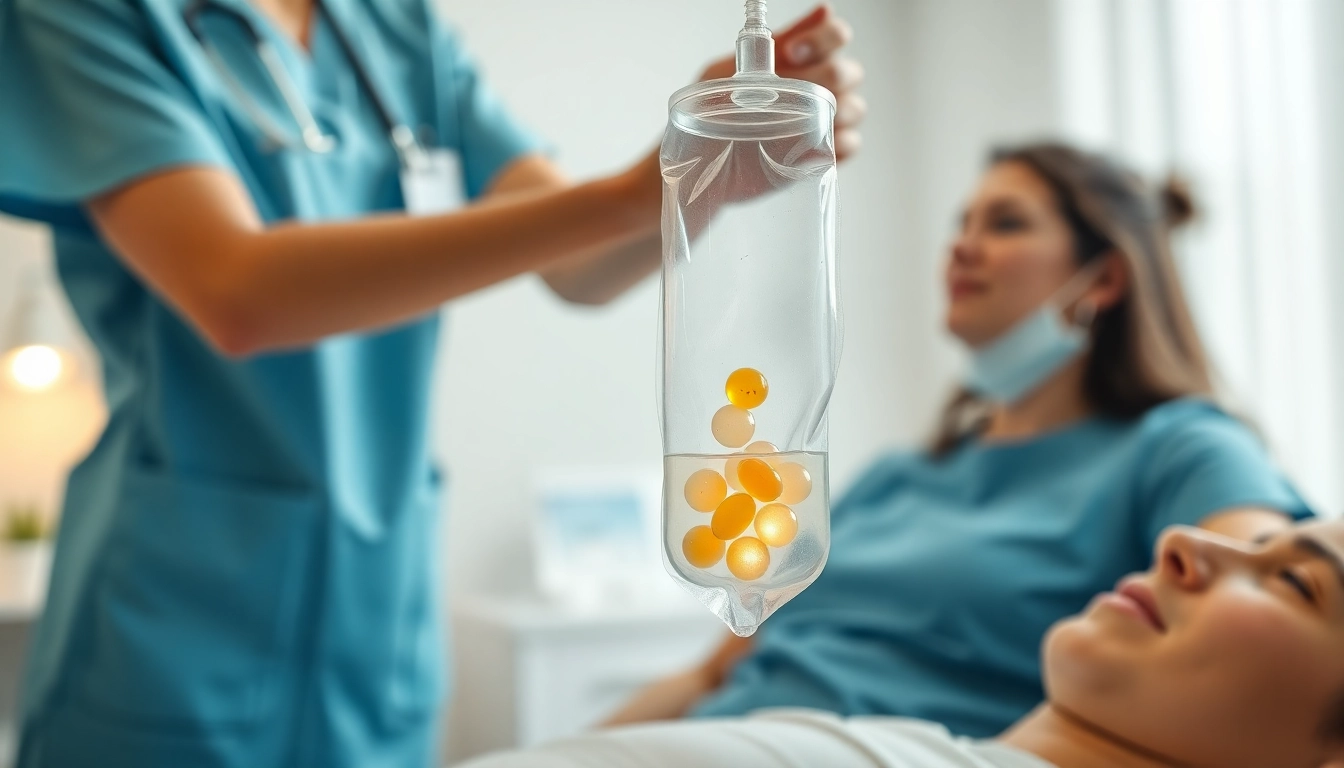What Are Intravenous Vitamins?
Definition and Overview
Intravenous vitamins, often referred to as IV vitamin therapy, is a method of delivering essential nutrients directly into the bloodstream through an intravenous drip. This process allows for 100% absorption of vitamins and minerals, bypassing the digestive system which can often limit how much of these nutrients effectively get into the body. Intravenous vitamin therapy is designed to replenish deficiencies, enhance overall health, and even provide therapeutic benefits for various health conditions. With its rising popularity, many individuals are now seeking out intravenous vitamins for increased vitality and wellness.
How Intravenous Vitamins Work
The mechanism behind intravenous vitamin therapy is relatively straightforward. When vitamins and minerals are infused directly into the bloodstream, they are delivered rapidly to the cells, tissues, and organs that need them. This immediacy contrasts sharply with oral supplements, which must be broken down and absorbed through the gastrointestinal tract. As a result, patients often report feeling the effects of IV therapy almost immediately. Furthermore, this mode of administration is particularly useful for individuals experiencing malabsorption issues due to gastrointestinal diseases or disorders.
Types of Intravenous Vitamins Available
There are several formulations used in IV vitamin therapy. Among the most common include:
- Myers’ Cocktail: A blend of vitamins and minerals, including Vitamin C, B vitamins, and magnesium, this cocktail is known for its broad-ranging health benefits.
- Vitamin C Infusion: Often used for its immune-boosting properties, high doses of Vitamin C delivered intravenously can assist in the fight against infections and may aid in cancer treatment.
- B-Complex Vitamins: Essential for energy production and metabolism, these can enhance physical performance and reduce fatigue.
- Glutathione: This powerful antioxidant is vital for detoxification and is believed to improve skin health when administered intravenously.
Benefits of Intravenous Vitamins
Improved Nutrient Absorption
One of the most significant advantages of intravenous vitamin therapy is the enhanced bioavailability of nutrients. When vitamins are administered via injection, they become immediately available for cellular uptake, a stark contrast to the delayed absorption seen with oral supplements. This potency can be particularly beneficial for individuals with absorption issues, such as those with Crohn’s disease or other gastrointestinal disorders, allowing them to receive crucial nutrients essential for their health.
Enhanced Energy Levels
Many patients report a dramatic increase in energy following their treatments. IV vitamin therapy can help alleviate fatigue by replenishing depleted nutrients in the body. For athletes and active individuals, this surge in energy can mean improved performance and recovery post-exercise. Common formulations for enhancing energy often feature B vitamins, known for their role in energy metabolism, as part of the infusion.
Support for Immune Function
Intravenous vitamins can play a critical role in bolstering the immune system. Regular infusions of vitamin C have been linked to improved immune responses and resistance to illnesses. Moreover, elements like zinc and other antioxidants are often included in immune-boosting IV therapies, further strengthening the body’s defenses against pathogens.
Who Can Benefit from Intravenous Vitamins?
Patients with Nutritional Deficiencies
Individuals diagnosed with nutritional deficiencies can gain immense benefits from intravenous vitamins. Conditions such as malnutrition, anemia, and vitamin D deficiency can affect overall health, leading to fatigue, weakness, and chronic health issues. IV therapy provides an efficient and effective means to restore nutrient levels quickly.
Athletes and Active Individuals
For athletes, intravenous vitamins represent a valuable tool for recovery and performance enhancement. Many athletes experience prolonged exhaustion post-training, making faster nutrient replenishment essential. IV infusions can provide quick recovery solutions, ensuring they remain energized and ready for their next performance.
Individuals Undergoing Medical Treatments
Cancer patients and those undergoing surgery or chronic illness treatments often find themselves depleted of vital nutrients. Intravenous vitamin therapy can serve as a complementary support system, helping to mitigate side effects like fatigue and loss of appetite, while promoting healing and recovery.
Potential Risks and Considerations
Common Side Effects
While intravenous vitamin therapy is generally considered safe, it is important to be aware of potential side effects. These can include:
- Infection at the injection site
- Allergic reactions to specific vitamins
- Fluid overload, particularly in individuals with existing health conditions
Understanding these risks and discussing them with a healthcare provider can help in making informed decisions about treatment.
Medical Conditions to Consider
Individuals with certain medical conditions may need to approach intravenous vitamin therapy with caution. Conditions such as kidney disease, heart disease, or those on specific medications may potentially interact with vitamin therapies. A thorough evaluation of one’s health status is crucial before embarking on this treatment.
Consulting a Healthcare Professional
Before beginning any intravenous therapy, it is vital to consult with a qualified healthcare professional who can evaluate individual health needs and create a personalized treatment plan. This consultation ensures that each patient receives the best and safest care tailored to their unique situation.
How to Get Started with Intravenous Vitamins
Finding a Qualified Provider
Locating a provider skilled in intravenous vitamin therapy is essential. Patients should look for licensed clinics or practitioners with proper credentials and experience in administering IV treatments. Online reviews, recommendations from healthcare providers, and consultations can help identify a trustworthy provider.
What to Expect During Treatment
During an IV session, patients can expect a calm and relaxing environment. A trained medical professional will insert a catheter into a vein, and the vitamin solution will be administered over a specific duration, typically ranging from 30 minutes to two hours. Patients may feel a warm sensation or mild tingling during the infusion but should not experience significant discomfort.
Post-Treatment Care and Monitoring
After treatment, patients should monitor how their body reacts to the infusion. It’s crucial to stay hydrated and rest as needed. If any unusual symptoms occur, such as prolonged pain at the injection site or allergic reactions, seeking immediate medical attention is advised.



